On November 27, students from the School of Chinese Language and Literature enrolled in the elective course on Creative Writing and Appreciation gathered in the practical space of room 505 at Wuhan University's Zhenhua Building for their second session of writing instruction using artificial intelligence.
The mere mention of the ‘Literary Laboratory’, sparked a sense of wonder and curiosity among the participants. Eager and excited, students arrived early, ready to unravel the mystery of the Literature Laboratory and explore the uncharted territories of immersive intelligent writing.
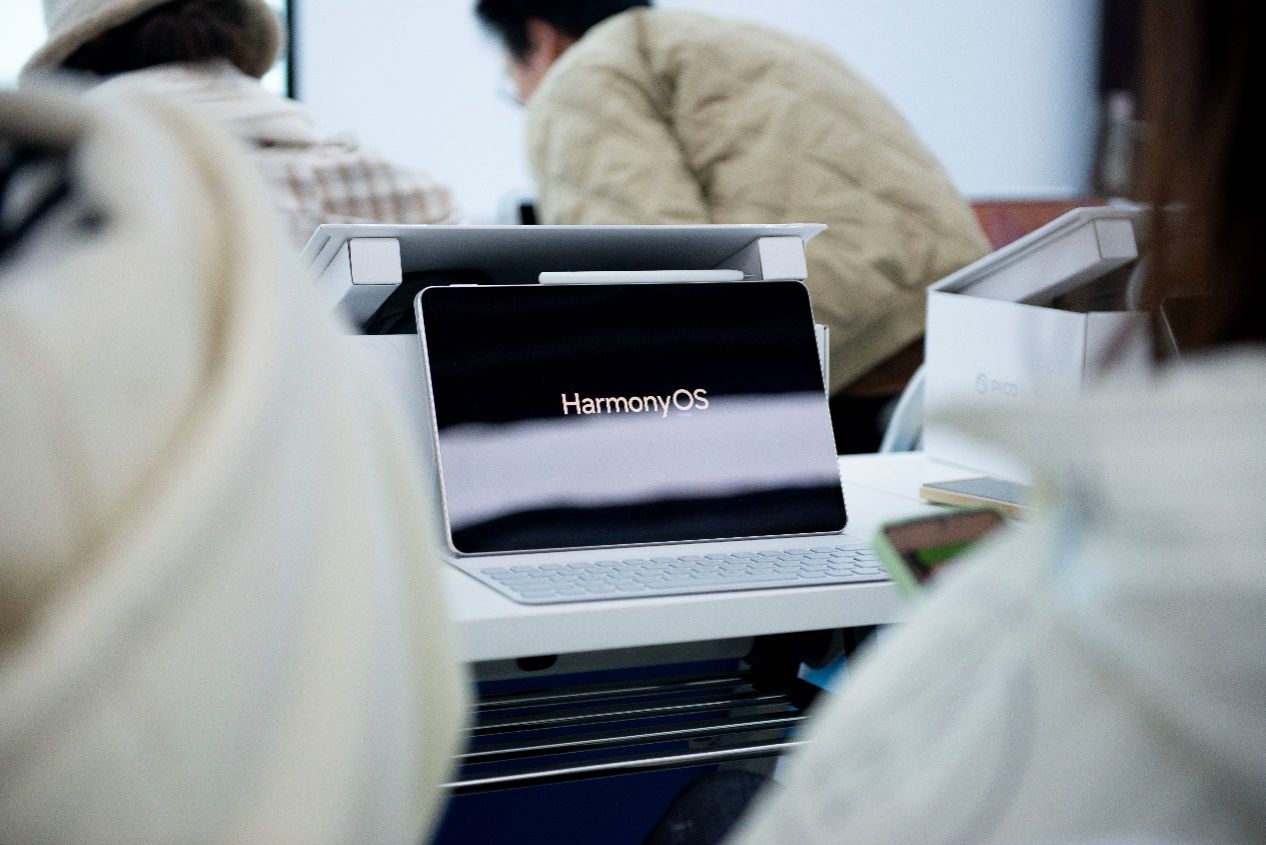
Multi-screen operating system for students
Situated in the Zhenhua Building, bathed in the warm glow of the setting sun to the west, overlooking the low pine-covered hills to the south, adjacent to the National Wuhan University Memorial Archway to the north, and facing the College of Life Sciences, a building that exemplifies the traditional Chinese architectural concept of ‘heavenly circle and earthly square’, to the east, the Literary Laboratory, though modest in size, holds significant historical importance.
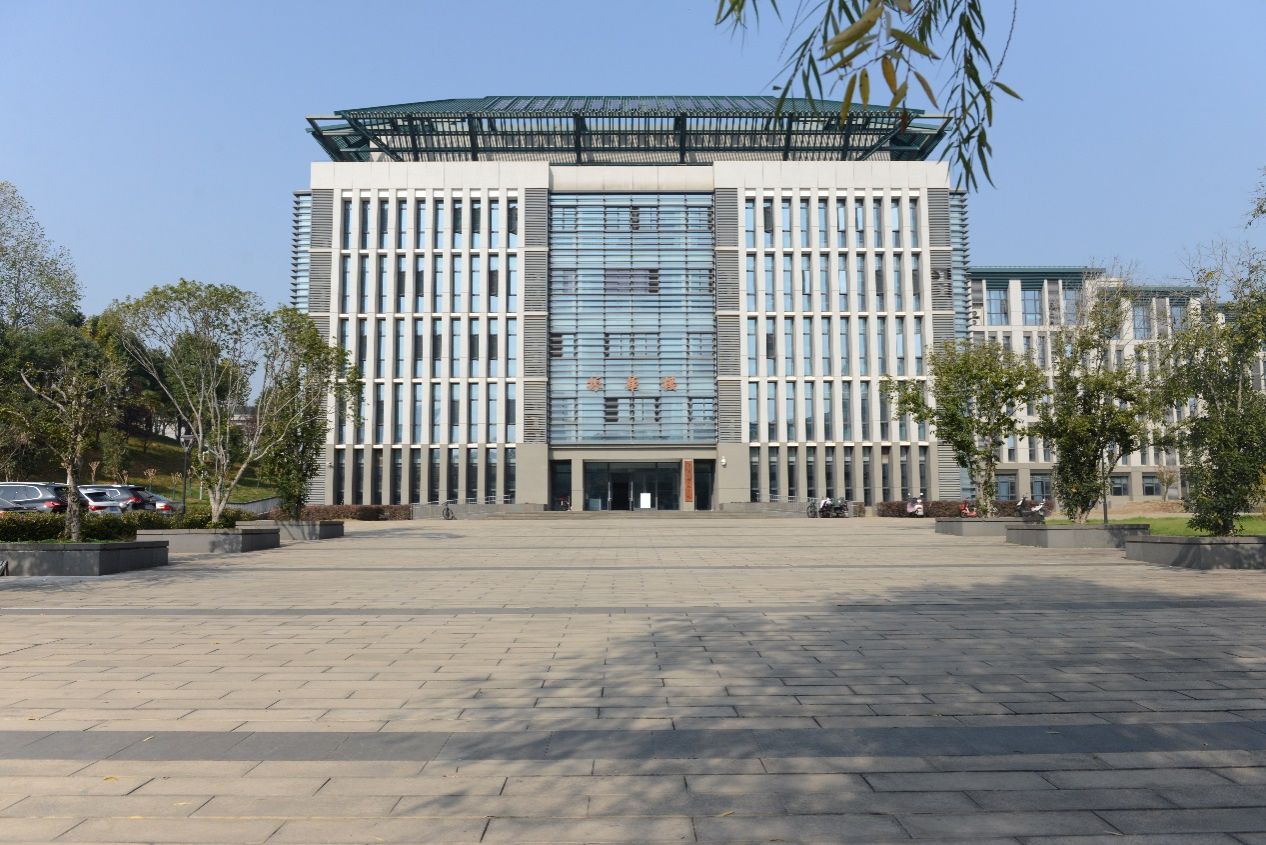
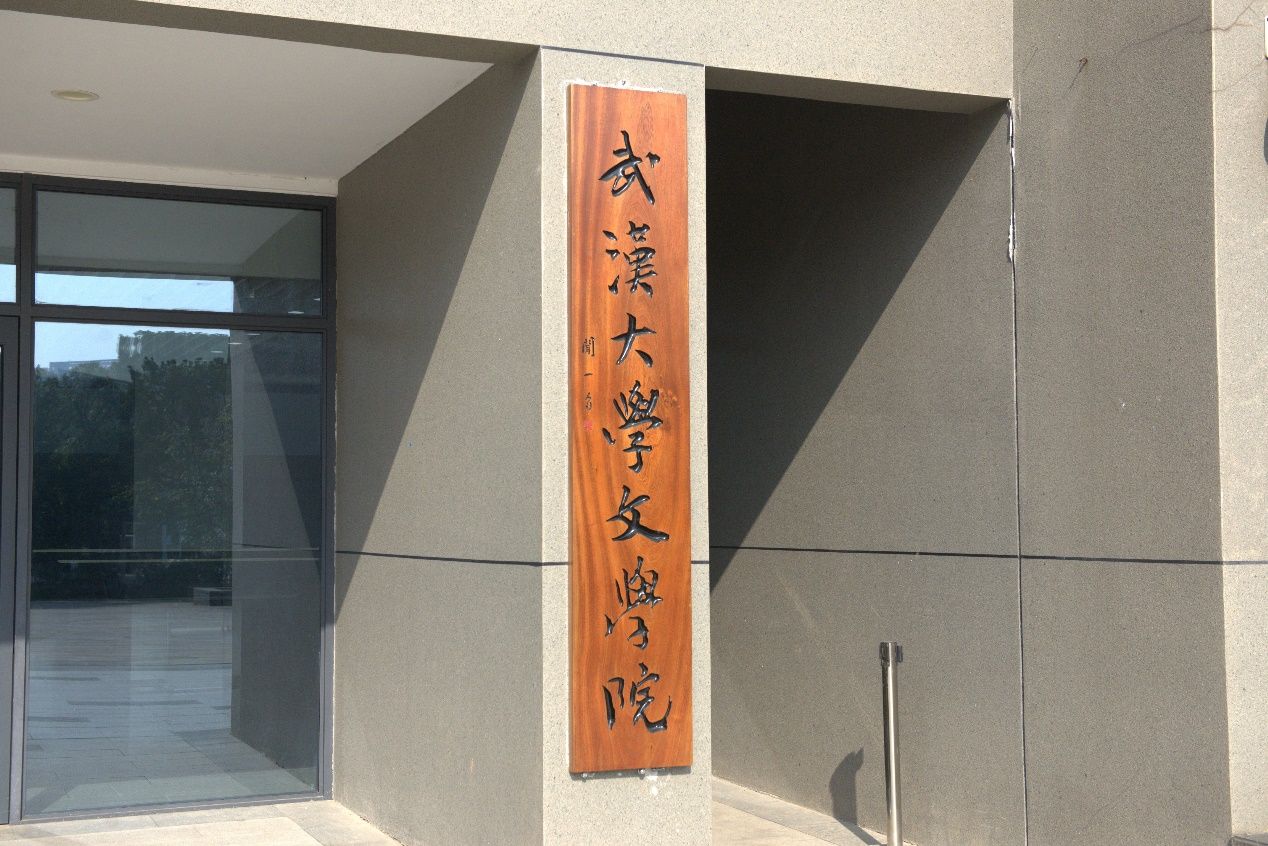
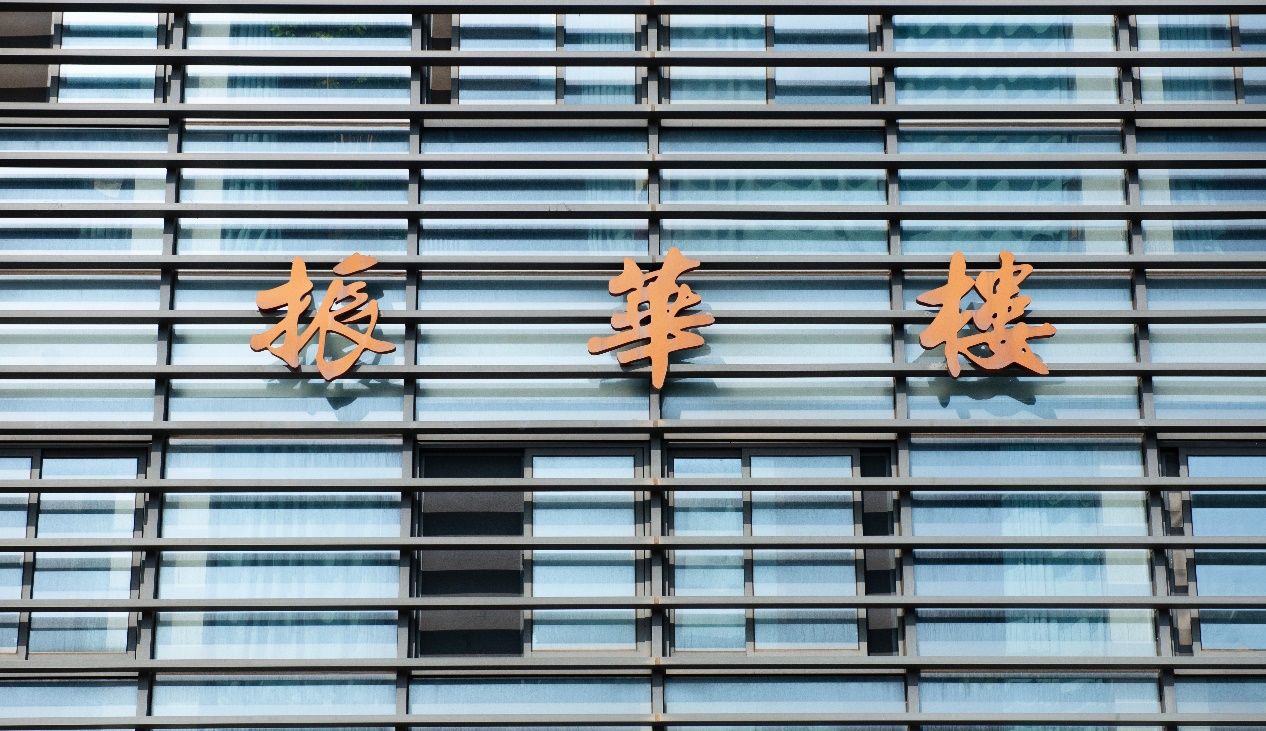
Zhenhua Building, School of Chinese Language and Literature
By the middle of November, the laboratory had been fully equipped, paving the way for its first-phase experiment on November 20. Officially named the ‘Teaching and Research Laboratory for Writing in Artificial Intelligence’, it utilizes immersive VR equipment to create an immersive, intelligent teaching and training environment. This includes lesson preparation, teaching, autonomous learning, and evaluations, all facilitated by multi-screen interactive tools.
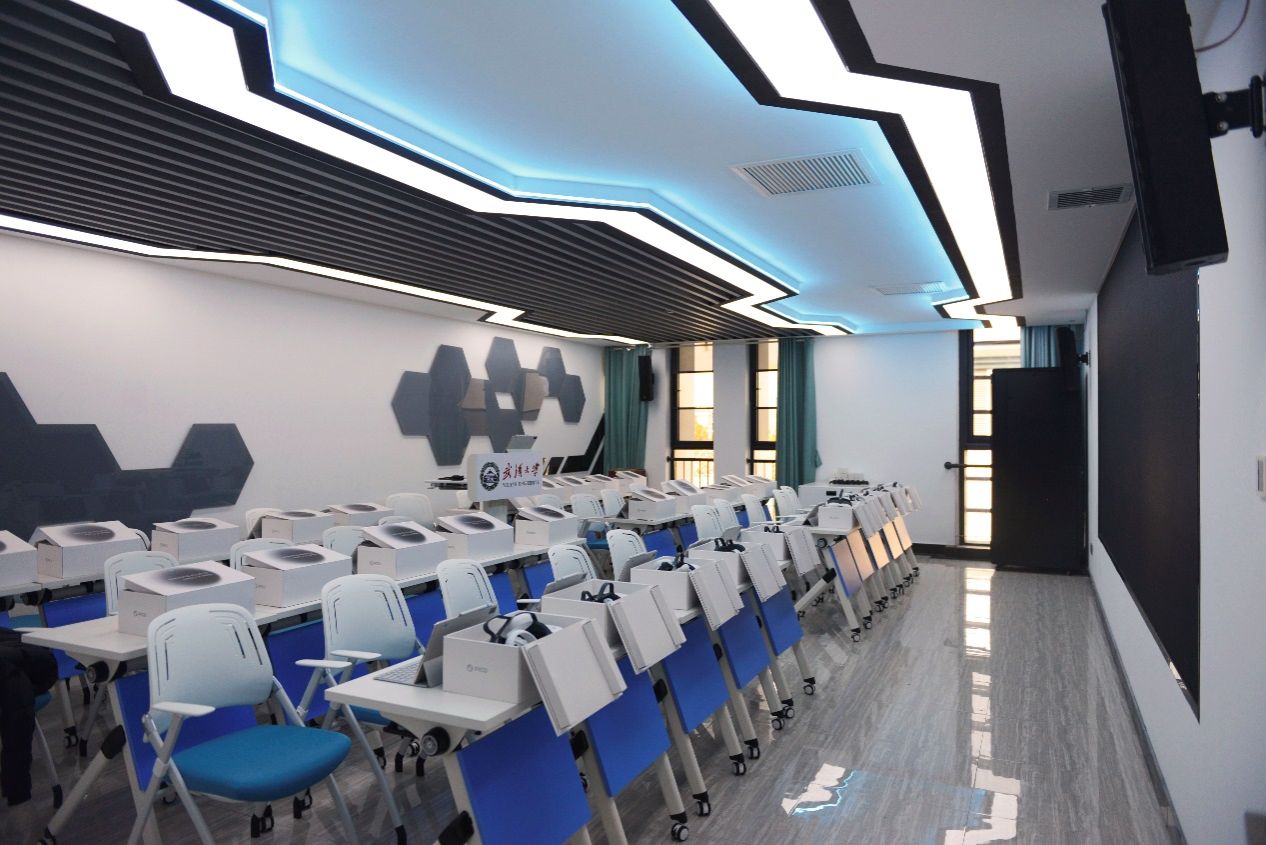
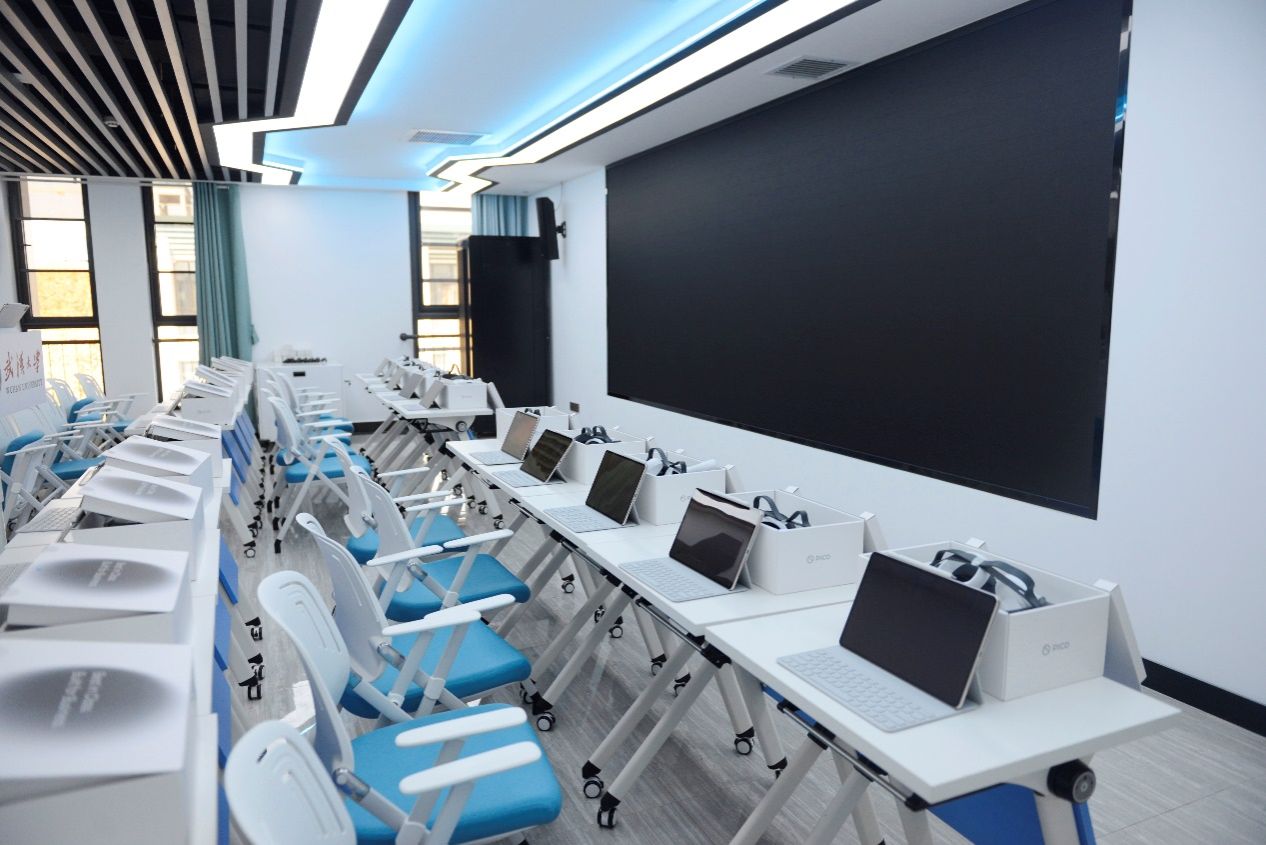
Panoramic view of the Teaching and Research Laboratory for Writing in Artificial Intelligence
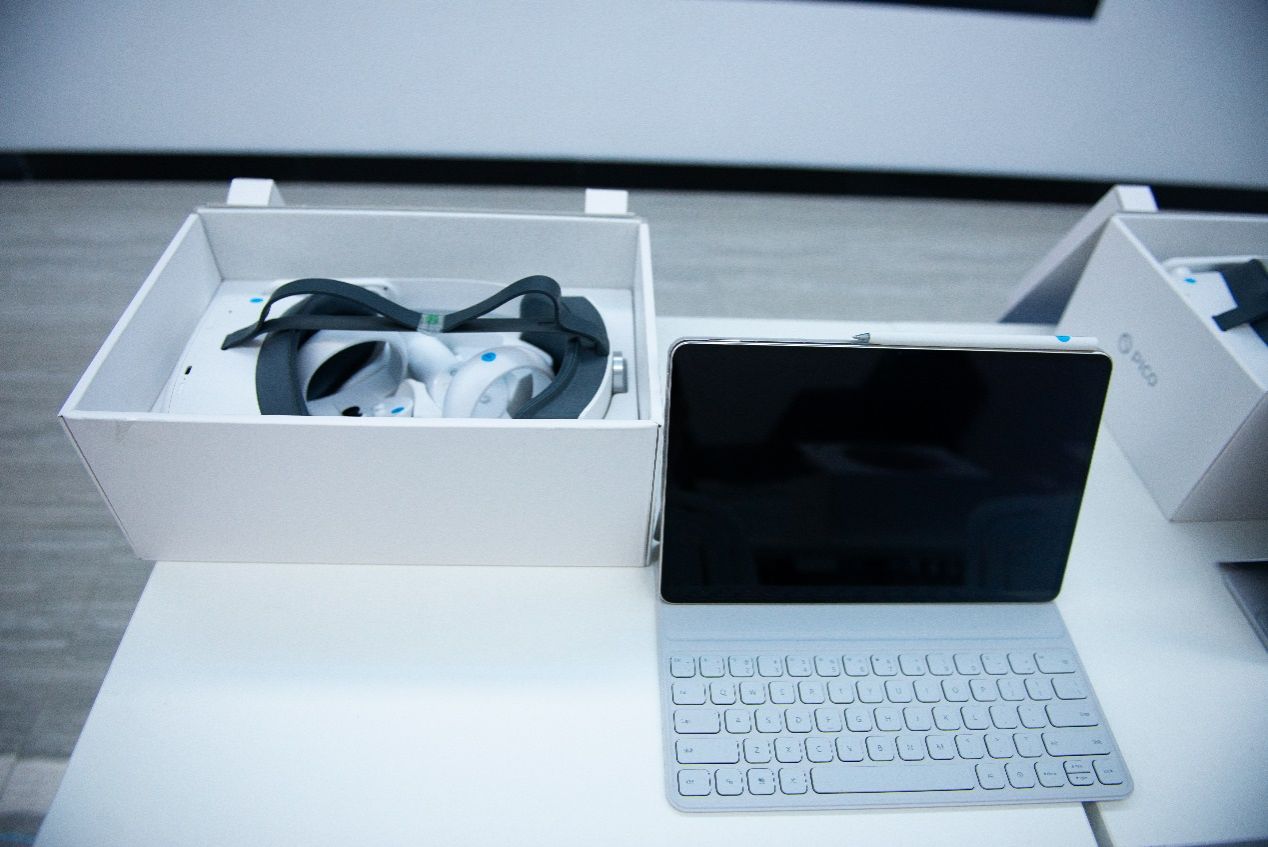
Smart VR equipment, including VR glasses, controllers, and tablets
During the trial phase, smart VR devices primarily offer simulations in nine categories, including scenes from literary works such as the Grand View Garden in The Story of the Stone, Hagia Sophia in Notre-Dame De Paris, the Trojan War from The Iliad, natural landscapes like the underwater world and the Himalayas, as well as cultural landmarks such as the Silk Road and the Mogao Caves in Dunhuang.
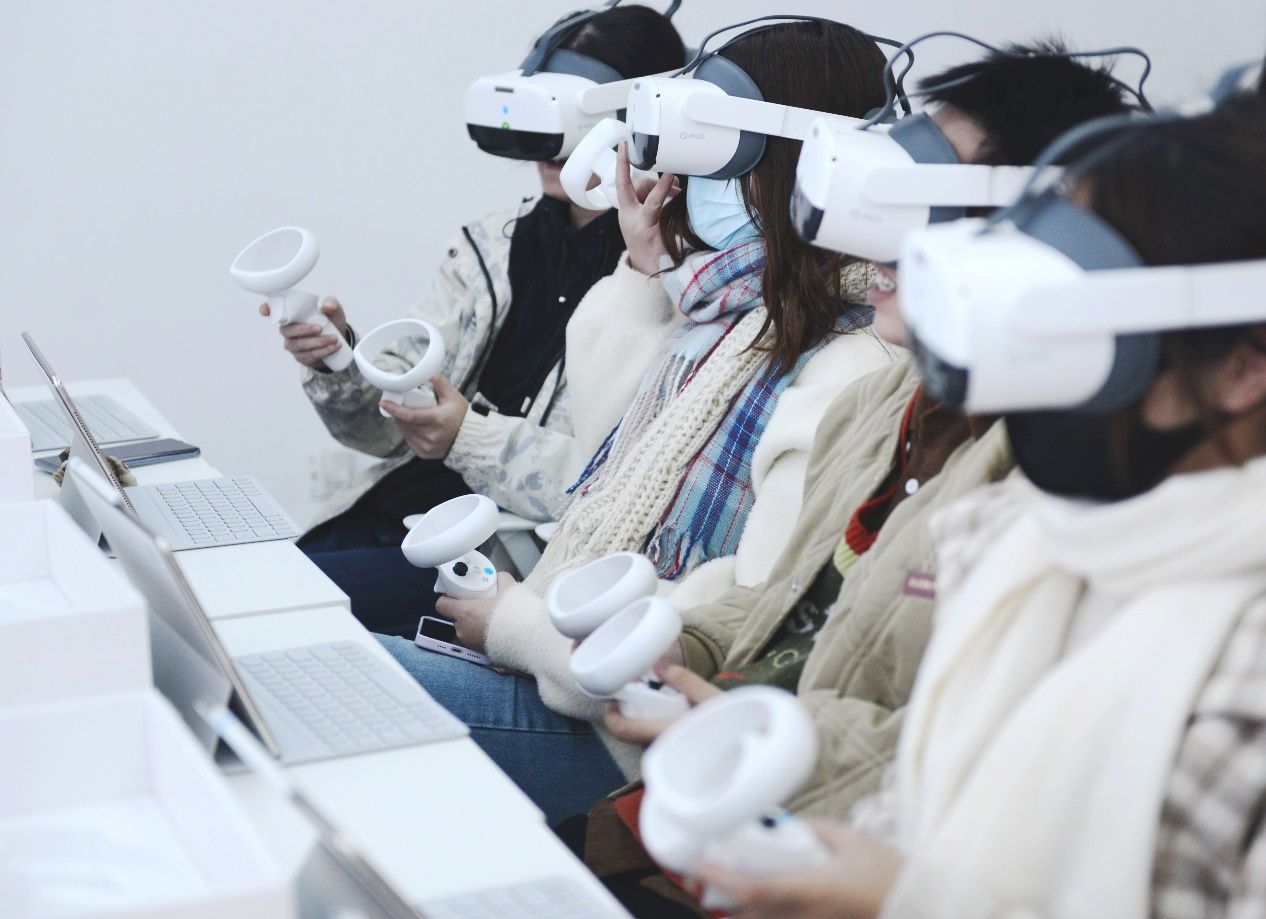
Students, wearing VR headsets and holding controllers, embark on their first exploration.
Equipped with VR devices and wielding controllers, students entered a three-dimensional virtual space, indulging in diverse scenarios and savoring a feast for both eyes and ears.
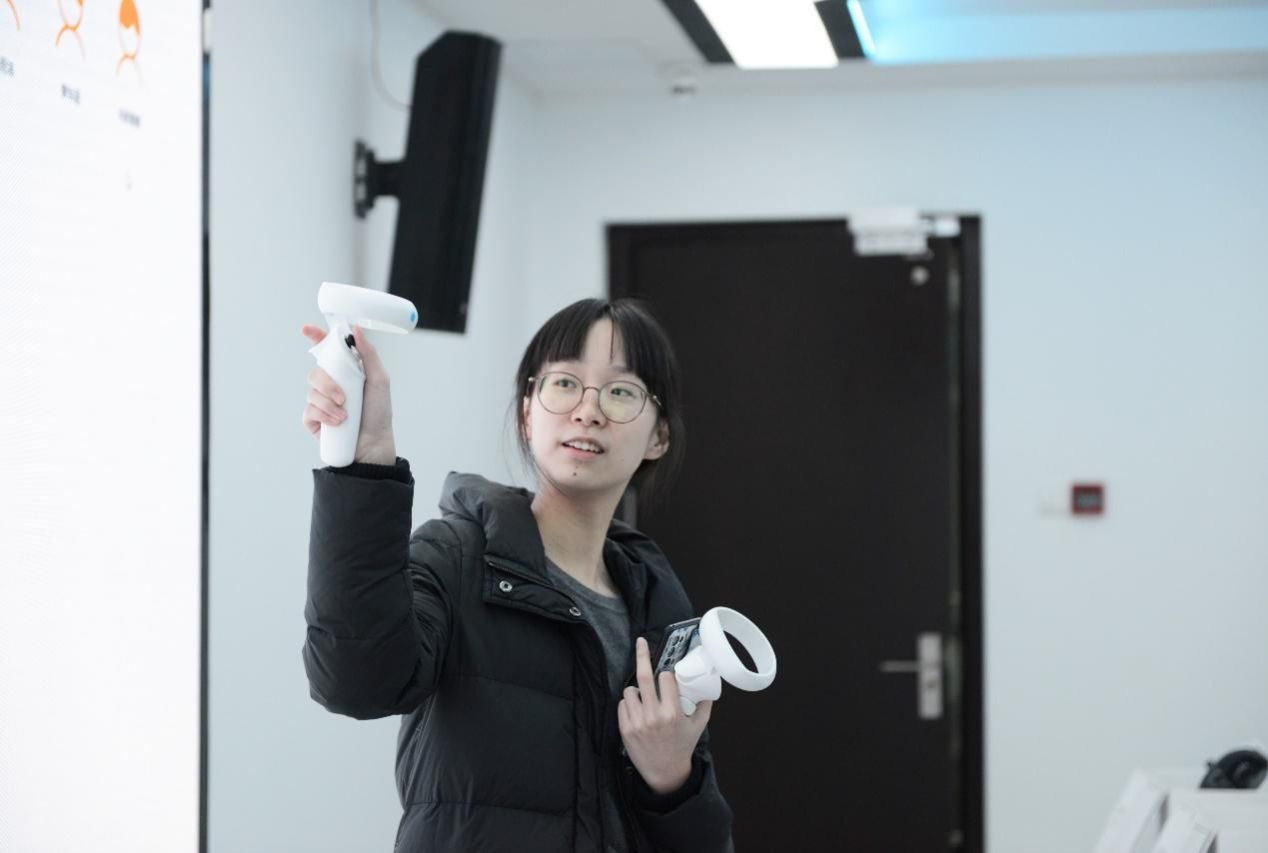
Teaching assistants from the Creative Writing and Appreciation course, along with guides from the Literary Laboratory, instruct students on how to use the equipment.
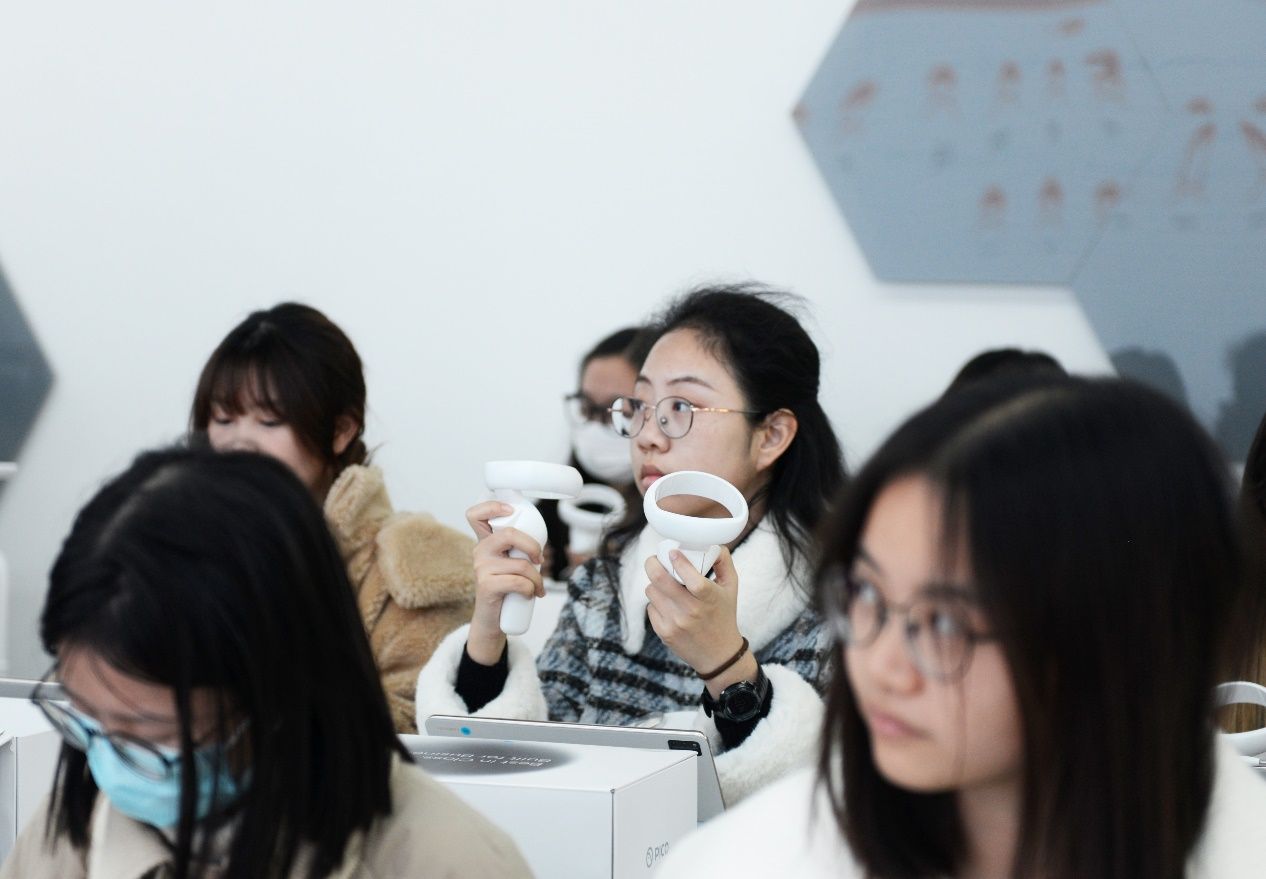
Students listen attentively.
Smart VR technology ignites students’ curiosity and enriches their literary experience by seamlessly integrating the smart system with traditional teaching methods. In practice, students can translate their experiences and emotions from the virtual space into polished writing. Meanwhile, teachers facilitate interactive teaching, student presentations, and simultaneous broadcasting using multi-screen systems. The incorporation of smart technology can thereby enhance teaching formats and elevate overall effectiveness.
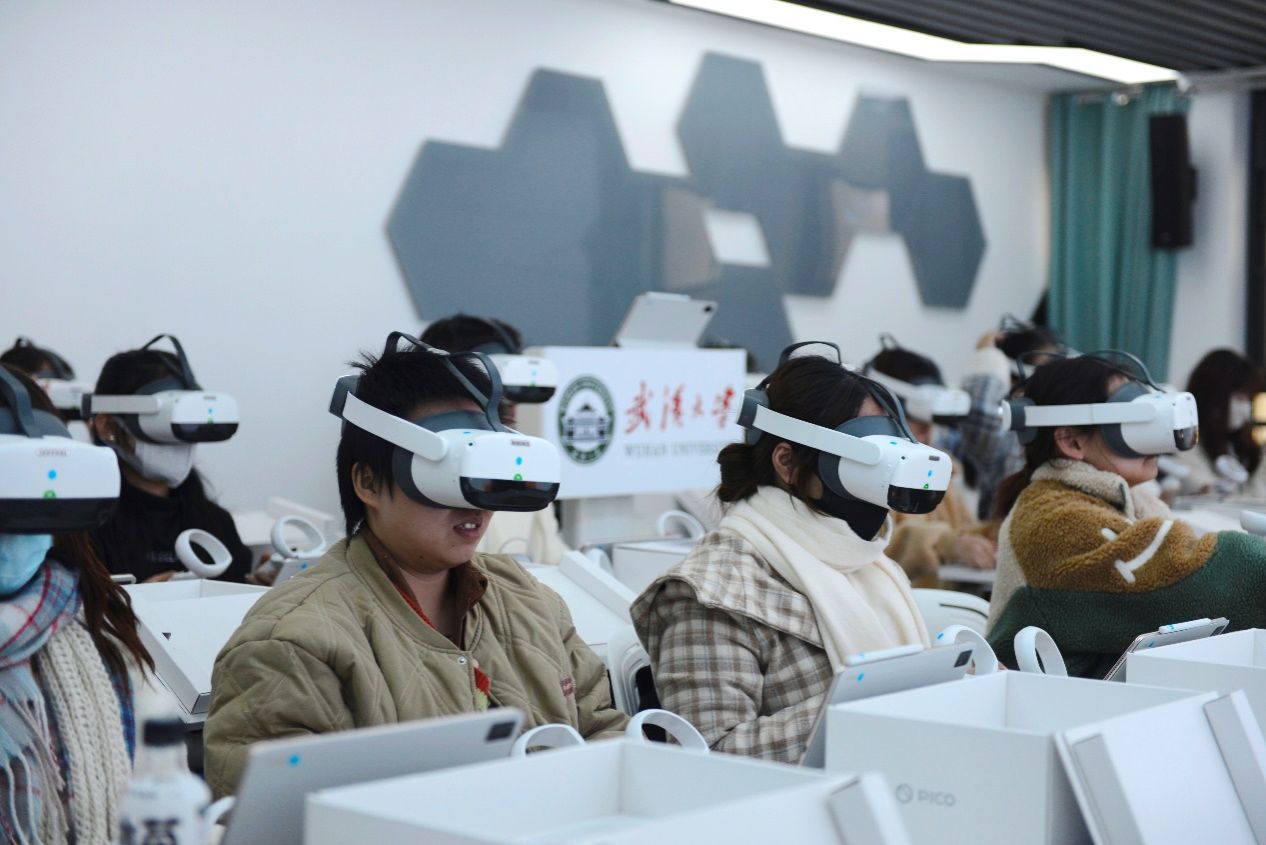
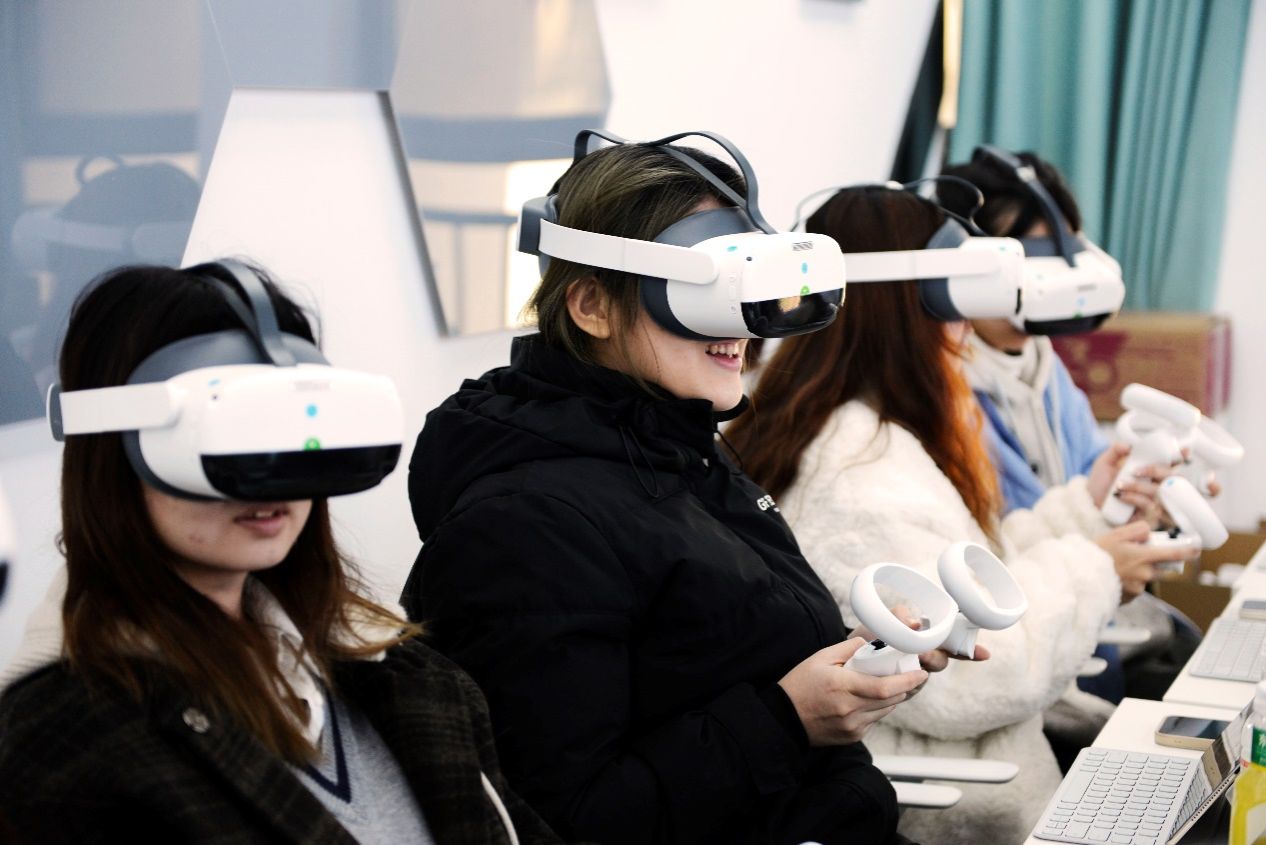
Students wielding controllers to explore new features
In their first encounter, the students faced challenges in navigating the new equipment. Nevertheless, their curiosity remained a driving force, motivating them to persist in exploring the functionalities of the new devices and interactive teaching methods.
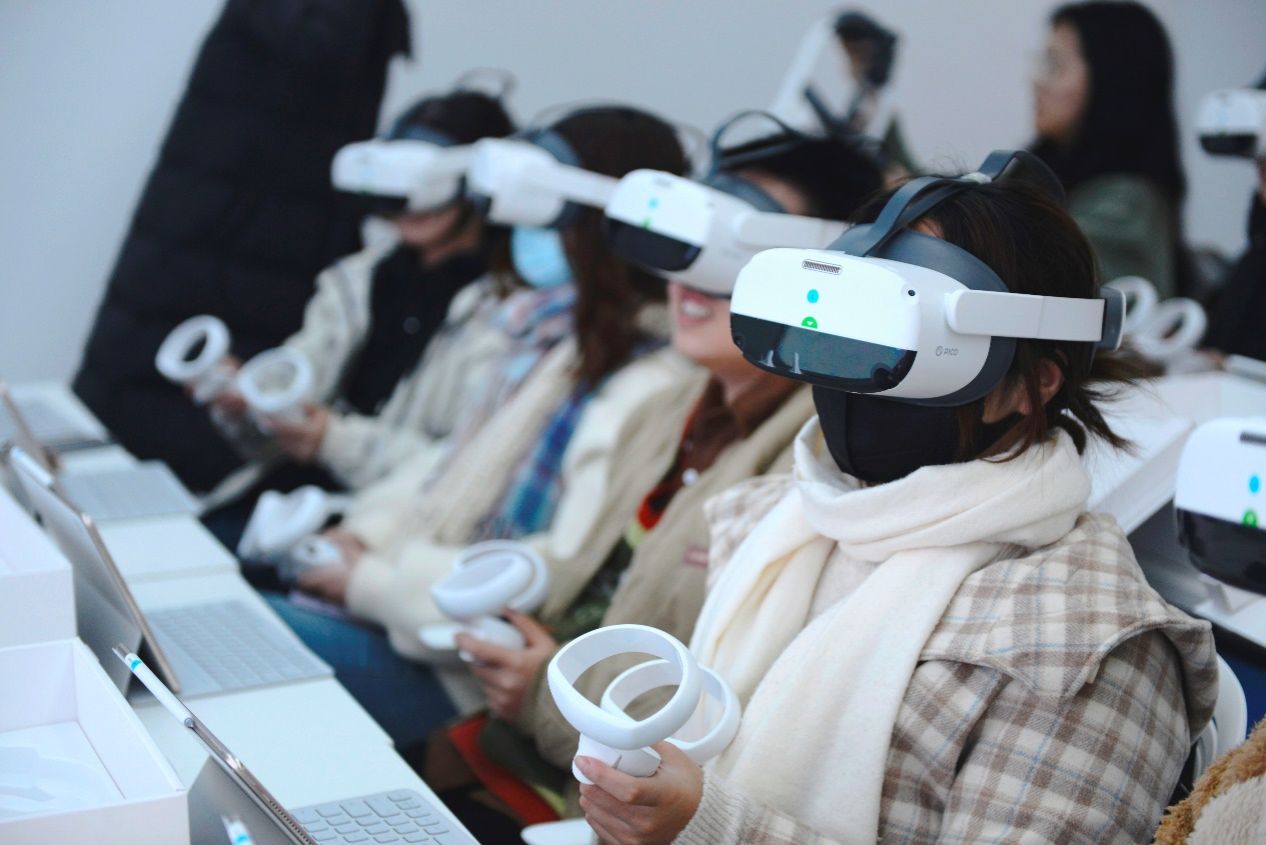
Observers and explorers
At the end of the class, participants reflected on the experience. Leveraging the multi-screen system adeptly, they expressed their thoughts on the application of VR technology in literary scenarios and virtual space experiences, offering valuable feedback.
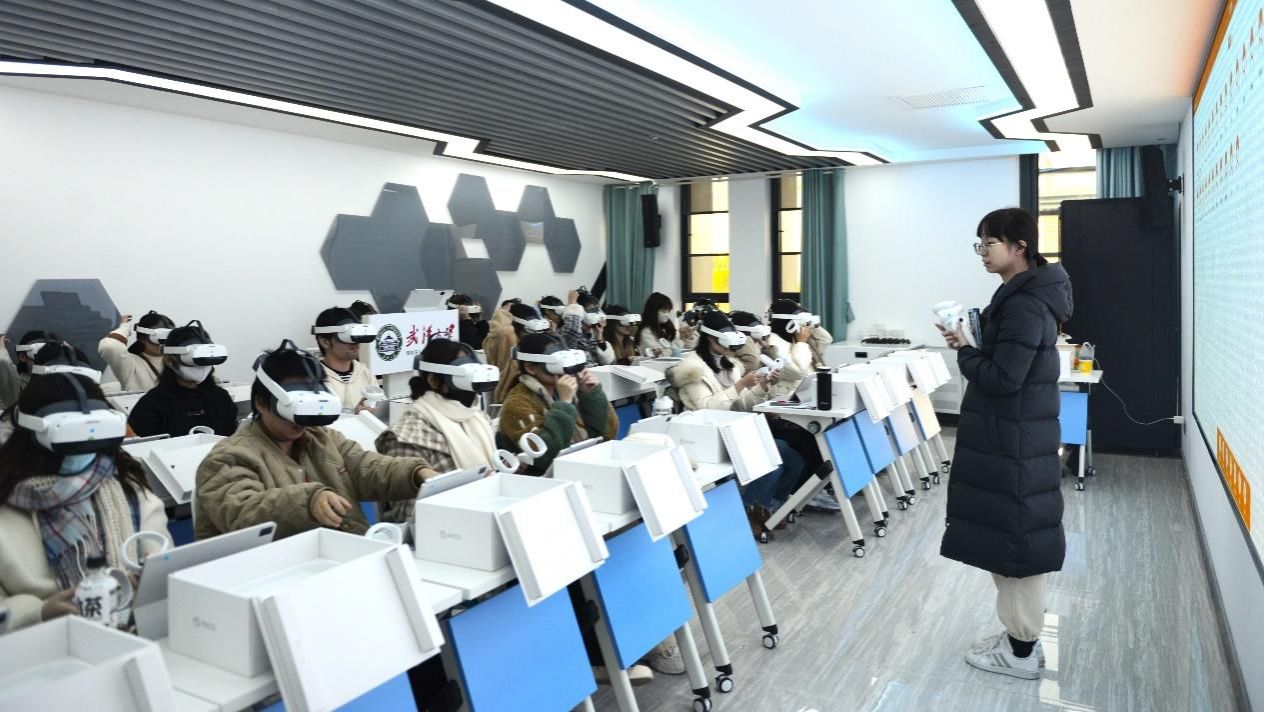
Discussion session
With a history of 130 years, Wuhan University is dedicated to nurturing talents for the new era in line with its motto of ‘Self-improvement, perseverance, truth-seeking, and innovation’. The School of Chinese Language and Literature, guided by the principles of the ‘New Humanities’ project and in tune with the advancements of the information age, integrates modern information technology with traditional liberal arts education. This innovative teaching approach provides students with a comprehensive interdisciplinary learning experience.